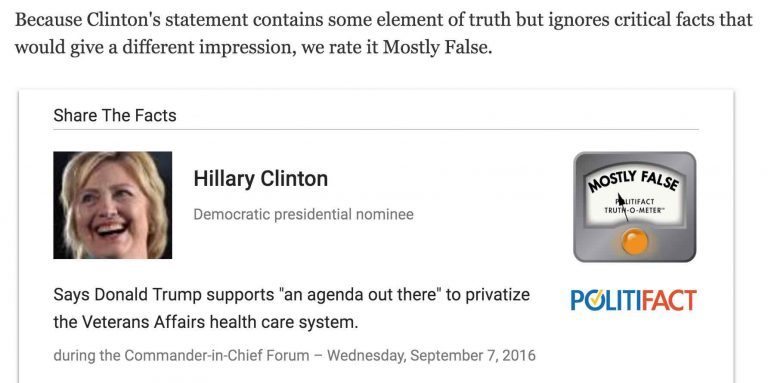PACT Act Foibles: Delays, Denials, And $1.4M Wasted On Examinations
A new watchdog report shows veterans are being wrongly delayed and denied benefits all the
while contracted examination companies were paid $1.4 million for unwarranted exams.
The PACT Act promised to help veterans secure benefits after decades of the Department of
Veterans Affairs (VA) playing Three Card Monty with its benefits rules.
The report from the VA Office of Inspector General (OIG) affirms what many veterans suspect.
Even despite the PACT Act‘s celebrity, VA still operates under the delay, deny, hope that you die
model using its bloated bureaucracy to hamstring disabled veterans desperate for justice.
What Is Happening
Veterans are being wrongly denied benefits despite the presumptive condition laws created by
the PACT Act. VA is spending a lot on examinations for veterans with proper diagnosis for
conditions that are presumptive. In many instances, the examinations are the cause of a
wrongful denial.
Prostate Cancer. In one case highlighted by OIG, one severely disabled veteran did not receive
$47,000 based on an examination VA wrongly requested for prostate cancer. The examiner
opined the prostate cancer was not due to toxic exposure, and the VA claims processor denied
the claim wrongly. The veteran was forced to go without additional pay for 19 months.
Hypertension. In another case, a veteran sought service-connection for hypertension from his
service in the Republic of Vietnam. His VA records showed a diagnosis for hypertension, and a
blood pressure reading consistent with hypertension was confirmed during the compensation
examination. However, the examiner was purportedly unable to read the VA records to confirm
the diagnosis, and the veteran was denied. OIG found the examination, costing around $200,
was unnecessary due to the presumptive and existing VA evidence.
Do we think VA contacted the veterans immediately to correct their wrongful act?
What The PACT Act Does
The PACT Act brought about historic changes that forced VA’s hand to admit liability without
requiring veterans to prove every aspect of a claim using presumptive conditions.
Think of VA as an insurance company for the Department of Defense. VA administers a kind of
worker’s compensation insurance scheme to help veterans who are permanently injured by
their military service. The PACT Act is designed to help veterans exposed to toxic chemicals
while in the military who were frequently unable to secure compensation based on then-
current evidence requirements.
For decades, VA has evaded financial responsibility for paying compensation claims for disabled
veterans by hiding behind causation science. If the “science” could not prove causation,
veterans could not get presumptive ratings based on commonly accepted exposures while in
certain countries like Vietnam or Afghanistan.
For decades, the pro-veteran [sic] system VA administers would require a veteran seeking
compensation for certain cancers to secure evidence not just of exposure to certain chemicals
at certain levels but also a medical opinion demonstrating, at least as likely as not, that the
chemical exposure while in the military was linked to the disabling condition.
Enter presumptive conditions in VA claims.
Using a presumptive, veterans are presumed to be exposed to certain chemical levels while in
certain locations, and those exposures are then presumed to result in certain disabling
conditions.
There are many examples. Some of the more common examples are brain cancer following
exposure to burn pit smoke in Iraq, or hypertension following exposure to herbicides in
Vietnam.
For many years, veterans suffering from these conditions struggled to receive benefits. In many
instances, families were forced to self-finance support for the veteran causing economic
inefficiencies and strife.
New Presumptive Conditions
The PACT Act added a host of conditions addressed in the OIG report exposing VA’s most recent
foibles in administering the benefit including using unnecessary medical examinations:
- – asthma diagnosed after service
- – brain cancer
- – chronic bronchitis
- – chronic obstructive pulmonary disease (COPD)
- – chronic rhinitis
- – chronic sinusitis
- – constrictive or obliterative bronchiolitis
- – emphysema
- – gastrointestinal cancer of any type
- – glioblastoma
- – granulomatous disease
- – head cancer of any type
- – interstitial lung disease
- – kidney cancer
- – lymphoma cancer of any type
- – lymphomatic cancer of any type
- – melanoma
- – neck cancer of any type
- – pancreatic cancer
- – pleuritis
- – pulmonary fibrosis
- – reproductive cancer of any type
- – respiratory cancer of any type
- – sarcoidosis
What OIG Found
Before I explain OIG’s findings, I want to explain how OIG presented the information to the
public. Let me know if you notice anything curious about the method of presentation OIG
seems to apply.
Take a look at the title, “Staff Incorrectly Processed Claims When Denying Veterans’ Benefits for
Presumptive Disabilities Under the PACT Act.”
The summary buries some of the numeric data in the third paragraph, which states:
“The OIG team also identified errors in claims processing that, while correctly denying service
connection, resulted in an estimated $1.4 million in unnecessary costs for unwarranted
examinations and medical opinions in the six-month review period. Underpayments were also
identified totaling about $56,700 for two veterans’ claims during the same period who were
improperly denied service connection. The team also found an estimated minimum of 870
potential errors that could affect veterans’ benefits. The OIG acknowledges that VBA has taken
steps to address these kinds of errors for examinations, but that work is ongoing.”
You’ll notice that only be reading the PDF do you get to the meat of the issues:
- – 45 percent of denials contained at least one error,
- – 36 percent of denials with unneeded exams costing taxpayers an estimated $1.4 million,
- – One severely disabled veteran was wrongly denied nearly $47,000.
Overdevelopment errors resulted in wrongfully withheld benefits payments to veterans. VA
operates inefficiently when it does not properly adjudicate veterans’ claims.
When veterans are disadvantaged through wrongful denial schemes employed by VA, either
intentionally or unintentionally, individual families and communities are disadvantaged. Money
that Congress used to fund VA should be going to the veteran, their families, and the local
communities where they live.
Any failure to help veterans using the compensation system is fundamentally un-American and
a blemish on our country’s ledger.
My Take
VA is way understaffed right now, and its leadership failed its veterans to anticipate the needs
of veterans who finally received proper ratings for toxic exposure disabilities.
If I were a bureaucrat trying to slow down benefits awards, or minimize them, I would use
cheap disability examinations as a method of rendering adverse decisions.
What did we see here? OIG reported VA used cheap examinations that resulted in unwarranted
denials costing veterans and their families thousands of dollars in tax-free money.
This is a move we frequently see as VA-accredited attorneys.
Many of you know that I represent veterans against VA after they are wrongly denied benefits
including disability compensation benefits and Veteran Readiness and Employment (VR&E)
benefits.
Learn More: Krause’s Veteran Rights Law Firm
We have seen an uptick in denials where the contracted examiner provides a contradictory
statement about whether the condition is from toxic exposure… all the while the condition is
supposed to be presumptive.
It happens a lot.
The PACT Act did a lot of good for a lot of veterans. Unfortunately, VA bean counters frequently
tip the scales in the direction of the agency whenever it can to evade certain payments.
So, what do you think?




“Federal data from 2022 compiled by the personal finance website ValuePenguin found that UnitedHealthcare far outpaced its competitors when it came to denying coverage, rejecting 32 percent or roughly one in three claims.” – The New Republic
Where’s the data on VA denial of care? We will never see it. They cover up everything possible. That’s the true injustice of dealing with an organization that has unlimited power and legal resources. That’s why it needs to change, or it needs to go.
Did the bogus personality disorder scandal get swept under the rug? Are they still running people with service connected musculoskeletal conditions around in circles with never ending physical therapy? You know that only causes more pain and is really malpractice if people have disk herniations. They shouldn’t be immune to lawsuits over their abuses. That system will NEVER be successful when the federal courts allow ethics and human rights to sink to that level.
It’s just a redistribution apparatus to the middle classes, who by the way don’t need it. All the money the VA spends on paying incompetents and guinea pig handlers could be going to healthcare for veterans. Those people should have jobs in the market even if the government has to do business loans, and veterans should have a choice whether or not they want to see them. As it sits, people are forced to see people they don’t want to, on both ends, and these people are given “immunity” which means it’s hard to sue if they deny care or abuse. That’s a bad deal, it will always be a bad deal, and partisan politics aside it needs to go away. Sadly though, it will not.
Anyone see this? https://nypost.com/2024/12/04/us-news/probe-into-va-facility-uncovers-orgy-official-who-had-sex-with-32-coworkers-report/
Undoubtedly there are problems and there may have been delay but this has not been malicious or vindictive. The VA has a responsibility to confirm the presence of the claimed disorder regardless of whether the disability is listed as a presumptive disorder. Ergo, the need for examinations. One can claim that they suffer from hypertension but in reality they may suffer from some other cardiac disorder that is not a presumptive condition. There must be a review and there must be proper training at the VA offices so that reviewers know how to read medical files and they can ask the right questions when an opinion is needed.
Sorry you sound like a VHA employee, could this be true?
What you say appears to be rational but unfortunately the manner in which the VA functions in these matters
is the issue
I am not a VHA employee and I never have been.
I got denied twice for Sinusitus and Rhinitus and I qualify for pact act due to my deployments. I was denied in 2008 when I separated and again in 2023 after the pact act was passed. I filed a supplemental claim this year and finally got awarded. Only thing that really changed was I had to get a nexus letter tying my condition to my service even though I had multiple occurances in my military records….(my VSO told me that was gonna be the only way they would approve it)…oh and I had surgery on my sinuses this spring. The Pact Act is a joke they don’t lower the bar for presumptive conditions, its a publicity stunt. Oh and I waited 10 months to get my decision last year. Imagine how getting my rating in 2008 would have changed things for me?
I have a psych appt by QTC any other exams just led to denials since on or before PACT was thought of same goes for CAMP Lejeune,
NEVER TRUST YOUR GOVERNMENT. THEY JUST WANT ALL US VETERANS DEAD